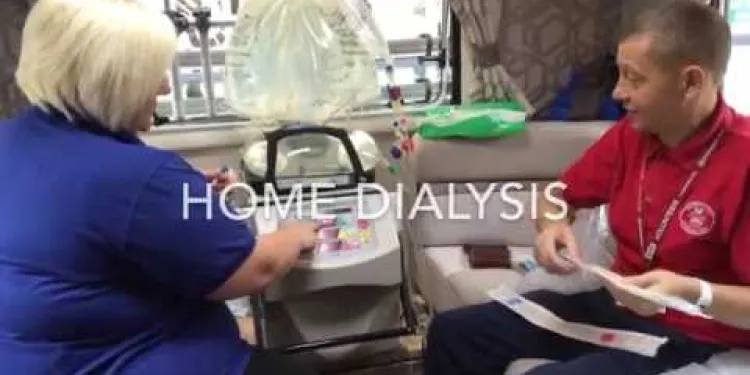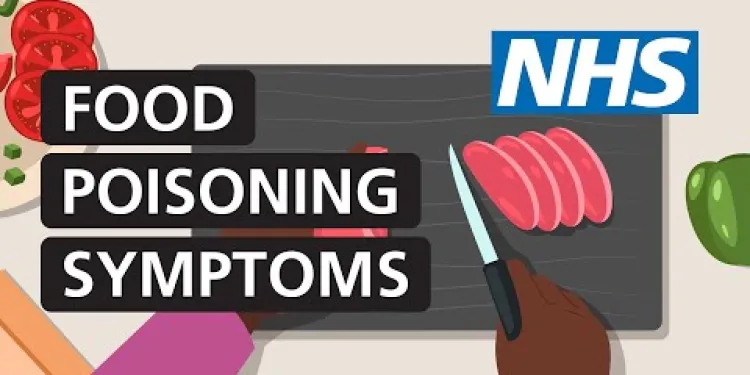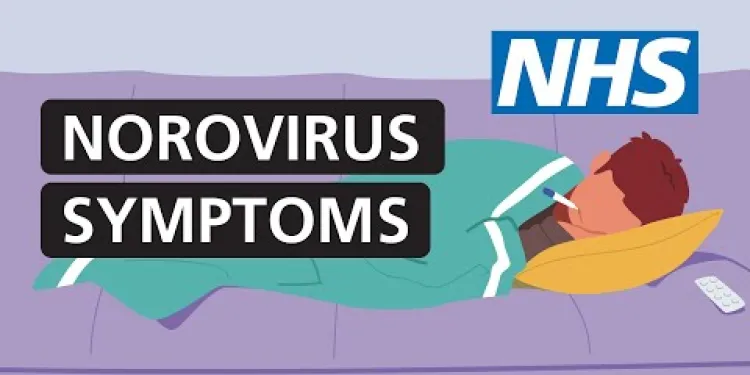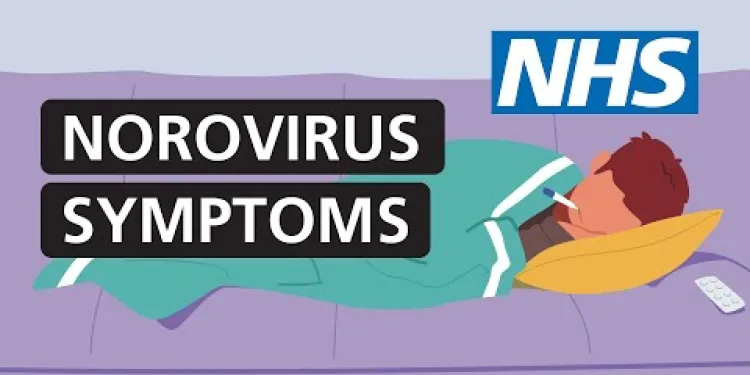
Find A Professional
More Items From Ergsy search
-

Is dialysis used in methanol poisoning cases?
Relevance: 100%
-

How does methanol poisoning differ from ethanol poisoning?
Relevance: 73%
-

What should you do if you suspect methanol poisoning?
Relevance: 68%
-

Can methanol poisoning be treated?
Relevance: 67%
-

What is methanol poisoning?
Relevance: 65%
-

Can methanol poisoning cause permanent damage?
Relevance: 63%
-

What are the symptoms of methanol poisoning?
Relevance: 63%
-

Why is methanol dangerous to humans?
Relevance: 60%
-

How can methanol poisoning be prevented?
Relevance: 55%
-

How quickly do symptoms of methanol poisoning appear?
Relevance: 53%
-

Home dialysis help for kidney patients
Relevance: 43%
-

Is there a specific test to diagnose methanol poisoning?
Relevance: 41%
-

Why is methanol sometimes found in illegally produced alcohol?
Relevance: 41%
-

Peritoneal Dialysis - Information Video
Relevance: 37%
-

What are the differences between methanol and ethanol?
Relevance: 37%
-

Home Haemodialysis - Donna's story
Relevance: 32%
-

What is the role of ethanol in the treatment of methanol poisoning?
Relevance: 28%
-

What is fomepizole and how does it work?
Relevance: 27%
-

How to tell if you have food poisoning (symptoms) | NHS
Relevance: 25%
-

What types of visual disturbances are associated with methanol poisoning?
Relevance: 23%
-

What professions are at higher risk of methanol exposure?
Relevance: 19%
-

What first aid measures can be taken in case of methanol exposure?
Relevance: 17%
-

Chronic kidney disease: What are the treatments?
Relevance: 15%
-

Blood Poisoning - Sepsis
Relevance: 6%
-

Are there any poisonous spiders in the UK?
Relevance: 6%
-

Matthew's Story: Kidney Transplant - Part 1
Relevance: 5%
-

Can methanol be absorbed through the skin?
Relevance: 3%
-

What is norovirus? (Diarrhoea and vomiting bug) | NHS
Relevance: 2%
-

How soon do symptoms appear after infection?
Relevance: 2%
-

Are there first aid courses for pets?
Relevance: 2%
-

Advice for diarrhoea and vomiting
Relevance: 2%
-

My child has vomiting and diarrhoea - what do I do?
Relevance: 2%
-

Diarrhoea - How to stop it? | UHL NHS Trust
Relevance: 2%
-

What is norovirus? (Diarrhoea and vomiting bug) | NHS
Relevance: 2%
-

Sepsis - a patient story
Relevance: 1%
-

Patient Stories - Having a kidney transplant
Relevance: 1%
-

Kidney transplant waiting stories – DJ Ace and Lauren | NHS Organ Donation
Relevance: 1%
-

What are the symptoms of sunburn?
Relevance: 1%
-

Is nettle rash related to nettle plants?
Relevance: 1%
-

What topics are covered in a first aid course?
Relevance: 1%
Understanding Methanol Poisoning
Methanol poisoning is a serious medical condition resulting from the ingestion of methanol, a toxic alcohol that is found in various industrial and consumer products. Methanol itself is not highly toxic, but it is metabolized in the liver to formaldehyde and formic acid, both of which are highly toxic to the human body. These metabolites can cause metabolic acidosis, damage to the optic nerve leading to blindness, and central nervous system depression.
The Role of Dialysis in Methanol Poisoning
In the case of methanol poisoning, prompt medical treatment is crucial due to the rapid absorption and metabolism of methanol into toxic metabolites. While antidotes such as fomepizole or ethanol are often the first line of treatment to inhibit alcohol dehydrogenase—the enzyme that converts methanol to damaging metabolites—dialysis also plays a critical role in the management of severe cases.
Dialysis is used in methanol poisoning to remove both methanol and its toxic metabolites from the bloodstream, effectively reducing their concentration and mitigating their harmful effects on the body. It is particularly indicated in cases of severe poisoning, characterized by high levels of methanol in the blood, severe metabolic acidosis, or renal failure.
Types of Dialysis Used
There are two main types of dialysis that can be employed in the treatment of methanol poisoning: hemodialysis and continuous renal replacement therapy (CRRT). Hemodialysis is the most commonly used form in this context due to its efficiency in rapidly removing toxins from the blood. It involves circulating the patient's blood through a machine that filters out waste products and returns the cleansed blood to the body. CRRT, on the other hand, is a slower and continuous form of dialysis that may be used in patients who are hemodynamically unstable.
Effectiveness of Dialysis in Methanol Poisoning
Dialysis is highly effective in reducing both methanol and formate levels in the blood, helping to correct metabolic acidosis and prevent further complications. Clinical studies have shown that prompt initiation of hemodialysis can significantly decrease morbidity and mortality associated with methanol poisoning, especially when combined with antidotal therapy.
In the UK, guidelines for the management of methanol poisoning include recommendations for the use of dialysis. The availability of hemodialysis and medical expertise in this area ensures that patients receive optimal care, reducing the risk of long-term sequelae or death.
Conclusion
In summary, dialysis, particularly hemodialysis, is a vital component of the treatment regimen for severe methanol poisoning. It effectively removes the toxic substances from the patient’s blood, alleviating symptoms and preventing serious complications. The use of dialysis, alongside antidotal treatment, provides the best chance of recovery for patients exposed to harmful levels of methanol. Prompt medical intervention remains crucial in managing this life-threatening condition and improving patient outcomes.
Understanding Methanol Poisoning
Methanol poisoning is when someone gets very sick from drinking methanol. Methanol is a type of alcohol that is used in many products. When methanol goes into the body, it changes into two bad chemicals. These chemicals can make you very sick. They can hurt your eyes and make you blind, and they can also affect your brain.
The Role of Dialysis in Methanol Poisoning
If someone has methanol poisoning, they need to see a doctor right away because it can get worse fast. Doctors usually give special medicine to stop the bad chemicals from forming. Dialysis is another way doctors help people who have very bad methanol poisoning.
Dialysis helps clean the blood. It takes out methanol and the bad chemicals from the blood. This helps people feel better and not get more sick. Dialysis is especially needed if there is a lot of methanol in the blood or if the person is very sick.
Types of Dialysis Used
There are two main kinds of dialysis: hemodialysis and continuous renal replacement therapy (CRRT). Hemodialysis works fast. It cleans the blood quickly by taking it through a machine and then putting it back in the body. CRRT works slower and is used for people who need gentle care.
Effectiveness of Dialysis in Methanol Poisoning
Dialysis works very well for methanol poisoning. It lowers the amount of methanol and bad chemicals in the blood. This helps people feel better and stops more problems. Studies show that starting hemodialysis quickly can help save lives and reduce the chance of serious sickness.
In the UK, there are rules on how to treat methanol poisoning. Doctors can use dialysis to help people feel better and stay safe.
Conclusion
To sum up, dialysis, especially hemodialysis, is very important for treating bad methanol poisoning. It helps take the bad stuff out of the blood and makes people feel better. Using dialysis and special medicine together helps people recover from methanol poisoning. It is very important to get medical help quickly for anyone who has methanol poisoning.
Frequently Asked Questions
Is dialysis used in methanol poisoning cases?
Yes, dialysis can be used in cases of methanol poisoning to help remove methanol and its toxic metabolites from the blood.
How does dialysis help in methanol poisoning?
Dialysis helps by efficiently removing methanol and formic acid from the blood, reducing toxicity and preventing further tissue damage.
What types of dialysis are used in methanol poisoning?
Hemodialysis is the most common type of dialysis used in methanol poisoning cases.
Why is hemodialysis preferred in methanol poisoning?
Hemodialysis is preferred because it rapidly clears methanol and its toxic metabolites, formate, from the bloodstream.
When is dialysis indicated in methanol poisoning?
Dialysis is indicated in severe cases, such as when there is a high methanol concentration, significant acidosis, or visual symptoms.
Can dialysis replace other treatments for methanol poisoning?
Dialysis is often used alongside antidotes like fomepizole or ethanol, and supportive care to treat methanol poisoning effectively.
How quickly does dialysis work in methanol poisoning?
Dialysis can quickly reduce methanol and formate levels, often leading to improvement within hours of initiation.
Is dialysis always required in methanol poisoning cases?
Not always. Dialysis is reserved for severe cases with specific indications like high methanol levels or metabolic acidosis.
What are the risks of using dialysis in methanol poisoning?
Risks are similar to those in regular dialysis, such as bleeding, infection, and electrolyte imbalances.
How long is dialysis performed in methanol poisoning cases?
The duration varies but usually continues until methanol levels decrease to a safe range and metabolic acidosis is corrected.
Does dialysis remove all methanol from the body?
Dialysis effectively removes both methanol and its toxic metabolites but may need to be coupled with other therapies for complete detoxification.
Can children with methanol poisoning undergo dialysis?
Yes, children can undergo dialysis, although the procedure is adjusted for their size and specific needs.
How is methanol poisoning diagnosed when considering dialysis?
Diagnosis often involves clinical evaluation, blood methanol concentration, and assessment of symptoms like acidosis and visual disturbances.
What is the role of antidotes when using dialysis for methanol poisoning?
Antidotes inhibit methanol metabolism to toxic products and may still be administered along with dialysis for comprehensive care.
Can peritoneal dialysis be used instead of hemodialysis in methanol poisoning?
Peritoneal dialysis is generally less effective than hemodialysis for methanol removal but may be considered if hemodialysis is unavailable.
What are the signs that dialysis is working in methanol poisoning?
Signs include decreasing methanol and formate levels, improving blood pH, and reduction in symptoms like visual disturbances.
Is dialysis effective for all patients with methanol poisoning?
Dialysis is highly effective especially in severe cases, but early detection and treatment increase overall effectiveness.
Who determines the need for dialysis in a methanol poisoning case?
Medical professionals, often toxicologists or nephrologists, determine the need based on specific criteria like methanol levels and symptoms.
How do you monitor progress during dialysis in methanol poisoning cases?
Progress is monitored through regular blood tests measuring methanol, formate concentrations, and other indicators of acidosis.
What is the success rate of dialysis in methanol poisoning treatment?
When used appropriately in severe cases, dialysis significantly improves outcomes and reduces mortality from methanol poisoning.
Do doctors use dialysis if someone drinks methanol?
Yes, dialysis can help when someone has methanol poisoning. It helps clean methanol out of the blood.
How does dialysis help when someone drinks something harmful?
Dialysis helps by taking out methanol and formic acid from the blood. This makes the blood less poisonous and stops damage to the body.
What kinds of dialysis help if someone drinks methanol?
If someone drinks methanol, doctors can use a special machine to clean the blood. This is called dialysis.
There are two main types of dialysis:
- Hemodialysis: A machine cleans the blood outside the body.
- Peritoneal dialysis: Fluid is put in the belly to clean the blood inside the body.
If someone has methanol poisoning, doctors often use hemodialysis because it works fast.
It's important for anyone who feels sick after drinking something to tell an adult and see a doctor.
Tools that can help: Pictures or videos about dialysis can make it easier to understand.
Hemodialysis is a common treatment used when methanol, a dangerous chemical, is in the body. It helps clean the blood.
Why do doctors use hemodialysis for methanol poisoning?
When someone drinks something bad like methanol, it can make them very sick. Doctors have special ways to help these people. One important way is called hemodialysis.
Hemodialysis is a treatment that cleans the blood. It takes out the bad stuff, like methanol, and helps people feel better.
Doctors choose hemodialysis because it works fast. It is very good at removing methanol from the blood.
If you or someone you know is learning this, ask for help from a teacher or a doctor to understand better. Looking at pictures or watching videos about hemodialysis can also help you learn.
Doctors use a special process called hemodialysis. It helps quickly clean bad stuff, like methanol, from the blood. This keeps people safe.
When do doctors use dialysis for methanol poisoning?
Dialysis is a treatment doctors use when things get really bad. They use it if:
- There is too much methanol in the body.
- The body becomes very acidic.
- There are problems with seeing.
Picture charts or audio aids can help understand this better.
Can dialysis be used instead of other treatments for methanol poisoning?
When someone gets sick from methanol, doctors use a special machine called dialysis. This machine helps clean the blood. Doctors also give medicines like fomepizole or ethanol to help. Taking care of the person is very important too. This way, they can feel better.
How fast does dialysis help in methanol poisoning?
Dialysis is a treatment that cleans the blood. It helps get rid of bad stuff, like methanol, from the body.
When someone has methanol poisoning, dialysis needs to start quickly. This is to stop the methanol from causing more harm.
Using pictures and videos can help explain how dialysis works. A helper can read this with you and answer any questions you have.
Dialysis is a treatment that can help remove bad substances like methanol and formate from your body. This can make you feel better in just a few hours after the treatment starts.
Do people always need dialysis for methanol poisoning?
No, not always. Dialysis is used only in very serious situations. This happens when there is too much methanol in the blood, or when the body is very out of balance.
Here are some tools and tips to help you understand:
- Using pictures: Drawing or looking at pictures can help explain what dialysis and methanol mean.
- Talking to someone: Ask a teacher, caregiver, or doctor to explain things in person.
- Breaking it down: Try to break down big words into smaller parts and say them slowly.
- Look for videos: Short videos can sometimes help explain things more clearly than words.
What are the dangers of using dialysis to treat methanol poisoning?
Methanol poisoning is when someone drinks or touches a poison called methanol. Methanol can make you very sick.
Dialysis is a treatment that helps clean the blood. Doctors might use it if someone is poisoned.
But there are some dangers with dialysis:
- It can be hard on the body and make you feel tired.
- There can be problems with blood pressure.
- It might not clean all the poison out.
If you feel sick from methanol, tell an adult or doctor right away. They can help!
Tools and techniques to help:
- Ask for pictures or videos to understand better.
- Break information into small, simple steps.
There are some risks, just like with regular dialysis. These include bleeding, getting an infection, and having too much or too little salt in your body.
How long do doctors use dialysis when someone drinks methanol?
The time it takes can be different for each person. It usually lasts until the methanol amount in the body goes down and the body's acid level is normal again.
Does dialysis take out all the methanol from the body?
Dialysis is a treatment that cleans the blood. But it might not take out all the methanol.
Methanol is a type of alcohol. It can make you very sick.
If you think you have methanol in your body, talk to a doctor. They can tell you what to do.
You can also use pictures or videos to help understand how dialysis works.
Dialysis helps clean methanol and its harmful parts from the blood. But, it might need other treatments to fully clean the body.
Can children with methanol poisoning get dialysis treatment?
Yes, kids can have dialysis. The doctors make it work for their size and what they need.
How do doctors find out if someone has methanol poisoning and needs dialysis?
The doctor will check to see if someone is sick by doing a few things. They will:
- Look at the person to see how they are feeling.
- Take a little bit of their blood to check for something called methanol.
- Ask if they feel sick or have trouble seeing.
If someone has trouble reading this, it's good to use tools like text-to-speech, which can read it out loud. Taking breaks and reading slowly can also help.
How do antidotes help when using dialysis to treat methanol poisoning?
There are special treatments called antidotes. These treatments stop bad chemicals from building up in the body when someone has methanol poisoning. Doctors might still use another treatment called dialysis to help clean the blood. Using both treatments together helps take really good care of the person.
Can we use a different kidney cleaning process for methanol poisoning?
Methanol is a type of poison. Sometimes people need their blood cleaned if they have methanol poisoning.
One way to clean blood is called hemodialysis. This is when a machine helps clean the blood.
Another way is called peritoneal dialysis. This is when we use the inside of a person’s tummy to help clean the blood.
We want to know if we can use peritoneal dialysis instead of hemodialysis for methanol poisoning.
If you need help with reading, you can use tools like a reading ruler or ask someone to read it with you. Take your time and ask questions if you need to.
Peritoneal dialysis is not as good as hemodialysis for removing methanol. But, it can be used if hemodialysis isn't available.
How can you tell if treatment is helping with methanol poisoning?
Here are some signs that the treatment (dialysis) is working:
- Feeling better: The person may start to feel better.
- Less pain: They might have less pain in their stomach.
- Clearer thinking: They might think more clearly.
- Normal breathing: Their breathing might be regular again.
Helpful tools:
- Use pictures: Pictures can help explain things better.
- Ask questions: It’s okay to ask questions if you don’t understand.
Look for these signs:
- Less methanol and formate in the body.
- Blood pH levels getting better.
- Symptoms getting better, like seeing things clearly.
Using tools like picture charts or reading aloud can help understand these signs more easily.
Does Dialysis Help Everyone with Methanol Poisoning?
When someone drinks methanol, it can make them very sick. Doctors sometimes use a treatment called dialysis to help. Dialysis is a machine that helps clean the blood.
But does dialysis work for everybody with methanol poisoning? Not always. It depends on how much methanol is in their body and how sick they are.
If you or someone you know has questions, talk to a doctor. They can explain more. Sometimes, doctors use other treatments too.
If reading is hard, you can try listening to someone read this to you. You can also use colored overlays on paper to help see the words better. Remember, it's okay to ask for help if you need it.
Dialysis works well, especially if you are very sick. But it is better to find the problem and treat it early to make it work even better.
Who decides if someone needs dialysis after methanol poisoning?
Doctors who know a lot about poisons or kidneys help decide if you need help. They look at how much methanol is in your body and how you're feeling.
How do you check progress during dialysis for methanol poisoning?
Checking progress during dialysis helps you know if the treatment is working.
Here are some steps to check progress:
- Take blood tests to see methanol levels.
- Watch for any signs of sickness.
- Measure how fast the dialyzer is cleaning the blood.
Ask a doctor or nurse if you need help. They are there to support you.
Doctors check how a person is getting better by doing blood tests often. They look at methanol and formate levels and watch for signs of acidosis, which means the blood is too acidic.
How well does dialysis work to treat methanol poisoning?
Dialysis is a treatment that helps clean the blood.
It can help people who have methanol poisoning.
Talk to a doctor to learn more.
Use pictures or videos to understand better.
Dialysis can help a lot if someone is very sick from methanol. It can make them feel better and less likely to die.
Useful Links
- Ergsy carfully checks the information in the videos we provide here.
- Videos shown by Youtube after a video has completed, have NOT been reviewed by ERGSY.
- To view, click the arrow in centre of video.
- Most of the videos you find here will have subtitles and/or closed captions available.
- You may need to turn these on, and choose your preferred language.
- Go to the video you'd like to watch.
- If closed captions (CC) are available, settings will be visible on the bottom right of the video player.
- To turn on Captions, click settings .
- To turn off Captions, click settings again.
More Items From Ergsy search
-

Is dialysis used in methanol poisoning cases?
Relevance: 100%
-

How does methanol poisoning differ from ethanol poisoning?
Relevance: 73%
-

What should you do if you suspect methanol poisoning?
Relevance: 68%
-

Can methanol poisoning be treated?
Relevance: 67%
-

What is methanol poisoning?
Relevance: 65%
-

Can methanol poisoning cause permanent damage?
Relevance: 63%
-

What are the symptoms of methanol poisoning?
Relevance: 63%
-

Why is methanol dangerous to humans?
Relevance: 60%
-

How can methanol poisoning be prevented?
Relevance: 55%
-

How quickly do symptoms of methanol poisoning appear?
Relevance: 53%
-

Home dialysis help for kidney patients
Relevance: 43%
-

Is there a specific test to diagnose methanol poisoning?
Relevance: 41%
-

Why is methanol sometimes found in illegally produced alcohol?
Relevance: 41%
-

Peritoneal Dialysis - Information Video
Relevance: 37%
-

What are the differences between methanol and ethanol?
Relevance: 37%
-

Home Haemodialysis - Donna's story
Relevance: 32%
-

What is the role of ethanol in the treatment of methanol poisoning?
Relevance: 28%
-

What is fomepizole and how does it work?
Relevance: 27%
-

How to tell if you have food poisoning (symptoms) | NHS
Relevance: 25%
-

What types of visual disturbances are associated with methanol poisoning?
Relevance: 23%
-

What professions are at higher risk of methanol exposure?
Relevance: 19%
-

What first aid measures can be taken in case of methanol exposure?
Relevance: 17%
-

Chronic kidney disease: What are the treatments?
Relevance: 15%
-

Blood Poisoning - Sepsis
Relevance: 6%
-

Are there any poisonous spiders in the UK?
Relevance: 6%
-

Matthew's Story: Kidney Transplant - Part 1
Relevance: 5%
-

Can methanol be absorbed through the skin?
Relevance: 3%
-

What is norovirus? (Diarrhoea and vomiting bug) | NHS
Relevance: 2%
-

How soon do symptoms appear after infection?
Relevance: 2%
-

Are there first aid courses for pets?
Relevance: 2%
-

Advice for diarrhoea and vomiting
Relevance: 2%
-

My child has vomiting and diarrhoea - what do I do?
Relevance: 2%
-

Diarrhoea - How to stop it? | UHL NHS Trust
Relevance: 2%
-

What is norovirus? (Diarrhoea and vomiting bug) | NHS
Relevance: 2%
-

Sepsis - a patient story
Relevance: 1%
-

Patient Stories - Having a kidney transplant
Relevance: 1%
-

Kidney transplant waiting stories – DJ Ace and Lauren | NHS Organ Donation
Relevance: 1%
-

What are the symptoms of sunburn?
Relevance: 1%
-

Is nettle rash related to nettle plants?
Relevance: 1%
-

What topics are covered in a first aid course?
Relevance: 1%